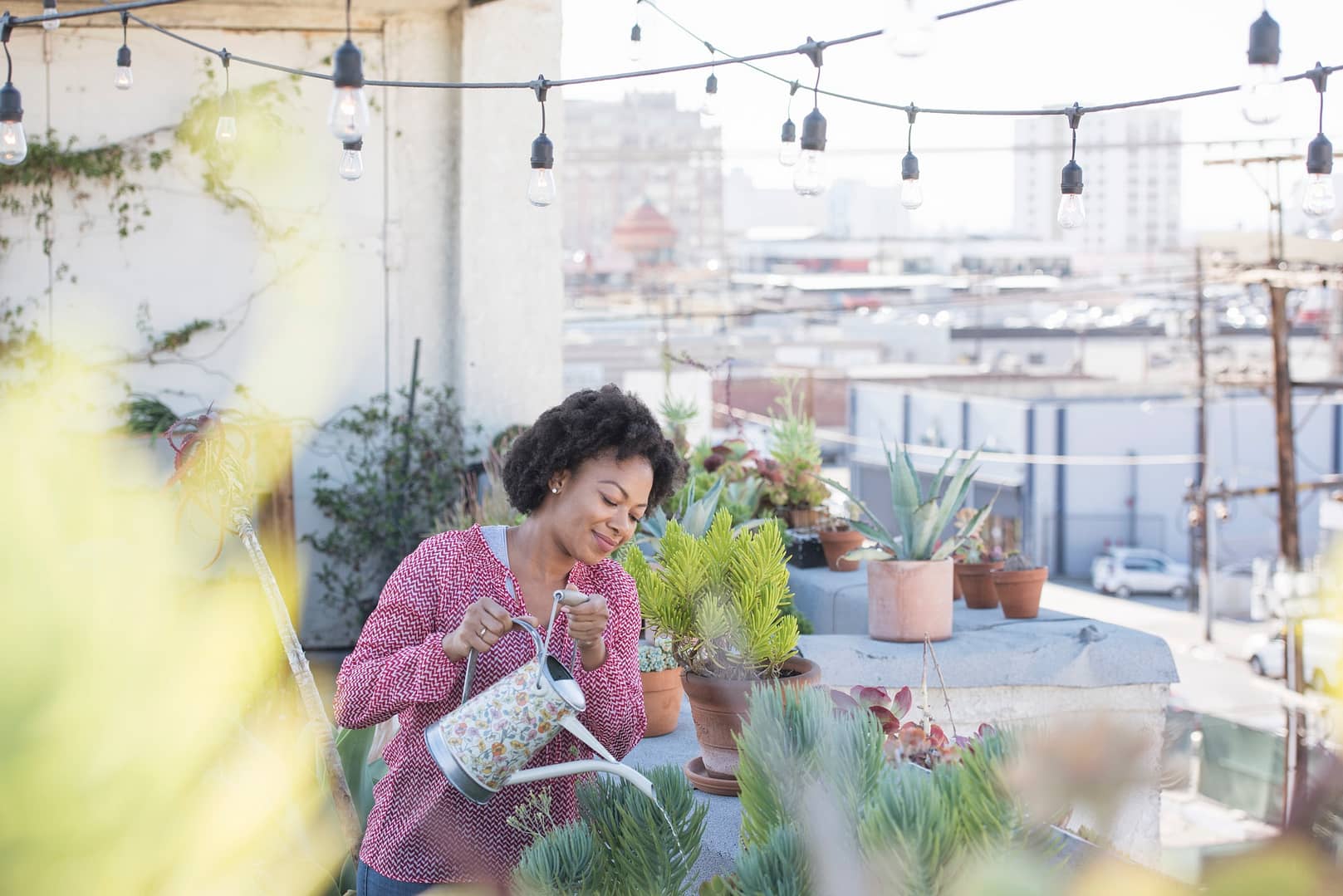Dallas Rooftop Gardening
So, you've made the exciting decision to explore Dallas rooftop gardening. It's a unique way to bring nature to the cityscape. When done correctly, rooftop gardens can offer a tranquil escape high above the ground. They not only provide a peaceful retreat but also contribute to environmental sustainability.
However, before you begin, it's crucial to understand the safety measures and precautions required for working at heights. Equipped with the right tools and knowledge, you can revel in the beauty of a rooftop garden while prioritizing your safety.
Let's delve into the world of Dallas rooftop gardening together.
Key Takeaways
So, you've decided to try out Dallas rooftop gardening. It's a unique way to bring nature to the city. When done well, rooftop gardens can offer a peaceful escape high above the ground. They not only provide a quiet retreat but also help with environmental sustainability.
Before you begin, it's important to understand the safety measures and precautions required for working at heights. With the right tools and knowledge, you can enjoy the beauty of a rooftop garden while prioritizing your safety.
Let's explore the world of Dallas rooftop gardening together.
Benefits of Rooftop Gardening in Dallas
Rooftop gardening in Dallas offers several benefits.
Firstly, it improves air quality by absorbing carbon dioxide and releasing oxygen, contributing to cleaner air in urban areas.
Additionally, rooftop gardens act as insulators, reducing the urban heat island effect by providing a cooling effect through the plants' transpiration and shading of the building's surface. This helps combat the negative effects of pollution and makes the air healthier to breathe.
Moreover, rooftop gardens allow you to grow your own produce, reducing the need for transportation and packaging, promoting sustainability, and decreasing carbon emissions. You can even sell the surplus produce at a local corner market, fostering community engagement and supporting the local economy.
Choosing the Right Plants for Dallas Climate
When you're picking plants for your rooftop garden in Dallas, it's important to choose ones that can handle the heat. Look for heat-tolerant options like lantana and black-eyed Susan, which can thrive in the city's hot and dry climate.
Succulents and Texas sage are great choices too because they don't need a lot of water. Also, consider native species like ornamental grasses and yuccas, as they're well-suited to Dallas' climate and can handle temperature changes well.
These plants will help create a beautiful and sustainable rooftop garden in Dallas.
Heat-Tolerant Plant Options
When creating a rooftop garden in Dallas, it's crucial to choose plants that can withstand the high temperatures and intense sun exposure. Consider heat-tolerant options like succulents, yuccas, and ornamental grasses, as they not only endure the heat but also enhance the visual appeal of your rooftop garden.
To support the growth of these plants, focus on designing microclimates that offer shade and protection. Installing water catchers and efficient irrigation systems is also essential for maintaining a thriving rooftop garden in Dallas.
Additionally, using native plants can reduce maintenance efforts and ensure the plants flourish in the local climate.
Now, let's explore the significance of selecting drought-resistant greenery for your Dallas rooftop garden.
Drought-Resistant Greenery Selection
When creating a rooftop garden in Dallas, it's important to choose plants that can withstand the arid climate with minimal maintenance. Opt for native plants like agave, yucca, and cacti, which thrive in such conditions. These plants need little water and soil upkeep, making them ideal for rooftop gardens. To ensure the success of your green space, focus on well-draining soil to prevent waterlogging and root rot. Here's a table to help you select the right plants:
| Plant | Characteristics |
|---|---|
| Agave | Drought-resistant, low maintenance |
| Yucca | Thrives in arid climates, requires little water |
| Cacti | Water-efficient, ideal for rooftop gardens |
Native Species Suitability
When creating a rooftop garden in Dallas, it's crucial to choose plant species that are native to the area and can thrive in the local climate and soil conditions. Native plants like Black-Eyed Susan, Texas Sage, and Prairie Verbena are well-suited to the Dallas environment. They require less water and maintenance, making them perfect for rooftop gardens while also promoting sustainability and reducing the need for extensive care.
By carefully selecting native plants, you not only contribute to the local ecosystem but also ensure low-maintenance and thriving greenery. This approach will help in reducing the need for extensive rooftop garden maintenance.
Now, let's explore the essential tools for rooftop gardeners.
Essential Tools for Rooftop Gardeners
Rooftop gardening requires the right tools for success. Lightweight and durable pots are essential for planting and maintaining your rooftop garden.
Additionally, trellises and hanging planters are crucial for maximizing space and creating an attractive garden design. These vertical gardening tools help make the most of limited rooftop space, allowing for a bountiful and visually appealing garden.
Container Gardening Essentials
Rooftop gardening requires the right tools, like strong containers and good potting soil. When it comes to essential items for container gardening, it's crucial to consider the following:
- Container Selection: Look for containers that are light, durable, and have good drainage. This promotes healthy plant growth. Vertical planters or hanging baskets can also maximize space and create a lush rooftop garden design.
- Potting Mix: Invest in a high-quality potting mix that provides good aeration and moisture retention for your plants. You can also consider adding organic fertilizers or compost to enrich the soil and support urban farming techniques.
Container gardening offers several benefits, including the ability to control soil quality, flexible placement, and reduced risk of soil-borne diseases. By incorporating these container gardening essentials, you can create a thriving rooftop garden while ensuring the safety and well-being of your plants.
Vertical Gardening Tools
When you design a rooftop garden in Dallas, it's important to incorporate vertical gardening tools. These tools, such as creative trellis designs and floor paneling, help maximize space and create new dimensions. They not only optimize space but also add a visually appealing element to your garden.
For example, vertical hydroponic systems can efficiently grow plants without soil, making the most of your rooftop's limited space. Innovative planters specifically designed for rooftop gardens can also provide an efficient and stylish way to cultivate a variety of plants.
Additionally, these tools can help ensure safety by securely holding plants and minimizing the risk of them falling.
Maximizing Space in Dallas Rooftop Gardens
When it comes to maximizing space in Dallas rooftop gardens, it's crucial to efficiently use the available resources. Green roofs offer benefits like insulation, stormwater management, and urban agriculture.
To make the most of limited space, consider incorporating multi-level terrace gardens, using floor paneling for additional greenery, and integrating plant trellises for vertical space. Minimalist vegetation can create a contemporary look and the illusion of more space.
Adding depth and dimension can be achieved by incorporating outdoor furniture that serves a dual purpose, such as seating with built-in planters. These design elements create a harmonious rooftop garden that maximizes space while providing a safe and enjoyable environment.
Irrigation and Water Management Tips
When it comes to rooftop gardening in Dallas, it's important to focus on water-efficient practices. One way to do this is by using aeroponic urban farm technology, which can help conserve water.
Additionally, utilizing methods like drip irrigation and smart controllers can efficiently water plants while minimizing water wastage. Another helpful technique is mulching, which reduces evaporation and helps maintain soil moisture.
To further conserve water, consider using eco-friendly practices such as utilizing greywater from sinks and showers for irrigation. Installing rain sensors can also prevent unnecessary irrigation during rainfall, contributing to water conservation efforts.
Another option is to use self-watering containers and hydroponic systems, which can optimize water usage and promote sustainable rooftop gardening in Dallas.
Managing Sunlight and Shade on Dallas Rooftops
When it comes to helping plants thrive on Dallas rooftops, it's essential to manage sunlight and shade strategically, considering the varying light needs of different plant species.
Here are some effective strategies for rooftop shading and sunlight management:
- Use pergolas or shade sails to create areas of filtered sunlight, which can provide a perfect balance for plants that need partial shade.
- Incorporate movable shade structures to adjust sunlight exposure throughout the day, ensuring that plants receive the right amount of light.
- Implement reflective surfaces like white gravel or light-colored pavers to bounce sunlight onto shaded areas, maximizing light distribution in the rooftop garden.
Maintenance and Care for Dallas Rooftop Gardens
When maintaining your rooftop garden in Dallas, it's important to regularly check for pests and diseases that can harm your plants. If you notice any issues, it's crucial to address them promptly to keep your plants healthy. Look out for common pests like aphids, spider mites, and caterpillars, and consider using natural pest control methods such as neem oil or insecticidal soap. You can also introduce helpful insects like ladybugs or lacewings to manage pest populations.
When choosing plants for your rooftop garden, consider the Dallas climate and select varieties that thrive in the current season. During the summer, focus on heat-tolerant plants, and in the winter, opt for cold-hardy crops. Additionally, remember to water your plants regularly, use mulch to retain moisture, and provide support for climbing plants.
These maintenance practices will help ensure the long-term health and productivity of your rooftop garden.
Frequently Asked Questions
What Are the Disadvantages of a Rooftop Garden?
Maintaining a rooftop garden can be challenging due to maintenance and structural limitations, such as water drainage and access issues. The environmental impact, including heat retention, may affect plant growth and require innovative solutions for successful gardening. These challenges can make rooftop gardening more demanding than traditional gardening methods. Additionally, the need for specialized equipment and expertise adds to the complexity of rooftop gardening. Despite these obstacles, with proper planning and care, rooftop gardens can still thrive and offer numerous benefits.
Are Rooftop Gardens a Good Idea?
Rooftop gardens have significant benefits for the environment and cost savings. They involve the community in sustainability, help reduce the urban heat island effect, and require smart water conservation methods. By implementing rooftop gardens, communities can actively contribute to a healthier and more sustainable urban environment. Additionally, they can save on energy costs and create pleasant green spaces in otherwise unused areas. These gardens offer an innovative solution to common urban challenges, making them a valuable addition to any community.
What City Has the Most Rooftop Gardens?
Rooftop gardens have become a defining feature of New York, Chicago, and Toronto, blending urban landscapes with natural elements. These cities have embraced rooftop gardening, setting a new standard for sustainable urban living. For example, New York's Brooklyn Grange Farm spans two rooftop locations, totaling 5.6 acres of cultivated space. Similarly, Chicago's City Hall boasts a 20,000-square-foot rooftop garden, featuring over 150 species of plants. Toronto's Ryerson University houses an extensive rooftop garden, contributing to the city's green initiatives and environmental efforts. These rooftop gardens not only enhance the aesthetic appeal of these cities but also promote environmental sustainability by reducing energy consumption and mitigating the urban heat island effect.
What Plants Can Grow on a Rooftop Garden?
When you're planting on a rooftop garden, it's important to consider the soil composition, sunlight exposure, and watering frequency. Using lightweight soil mixes, ensuring good sunlight, and watering as needed will help keep the plants healthy and thriving. Additionally, choosing plants that are well-suited to the local climate and weather conditions is crucial for rooftop gardening success. For example, succulents like sedum and sempervivum are excellent choices for rooftop gardens due to their ability to thrive in dry, sunny conditions and their low maintenance requirements.







